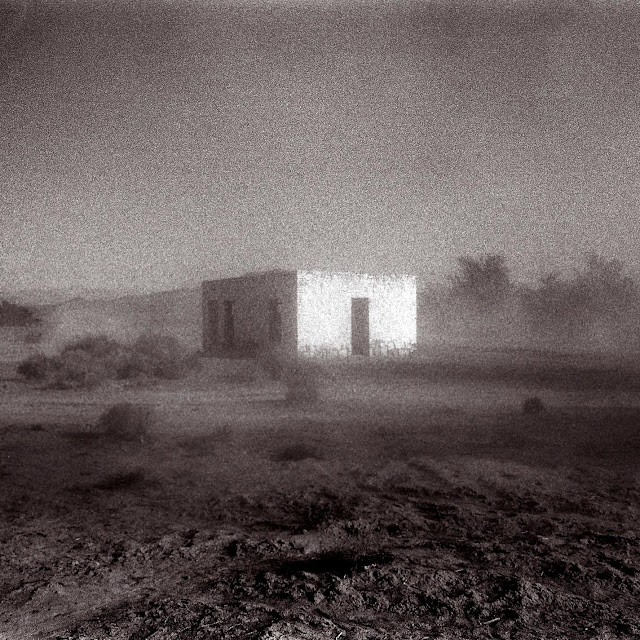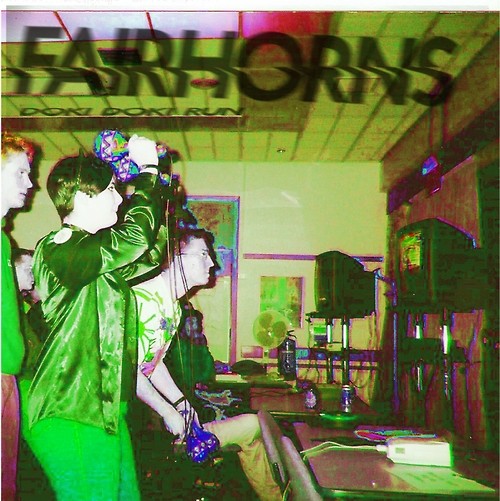
Inspired by courses both old and new (besides ancient ways, Roman Roads IV – XI was also influenced by Brooks' frequent ferriviaria itinerum between London and the Kentish art college at which he teaches) there's a suitably locomotive feel to the album. I often refrain from employing the term 'album', as many records tend not to adhere to the cohesion the term implies although his unaccompanied guitar here strings us along with an irrefutable conviction. Down Before the Kingsland Road and out the other side of Battle of Watling Street, it's as compelling and coherent an instrumental album as I've yet to hear as the former eases us into a concertedly motional oeuvre, only for the latter to grind out on a sort of bookish jam that's as though Zammuto trading some consistency into the admirable avant-garde grooves of Tyondai Braxton's Central Market. All melodramatic slumps (the sound of an adolescent shrug processed and repossessed) and clever slight inflexions, it's a real deal-sealer. En route, Brooks astounds as he wheedles myriad sounds, and with them sentiments from his chosen tool. As I say, an 'electric XI string guitar' is the only instrument to feature, despite the sprightly The Chester Road sounding akin to everything in BRAIDS' undoubtedly cumbersome box of tricks at once, and the thing being assimilated to disused drum machine on the crisp torpidity of Aurelian Way.
The pace builds, only to comfortably plateau with From Nero's Palace. A reliably steady piece within which Brooks juxtaposes palm muted chunks and shiny, trebly bits, it sets us off on our chirpy way quite majestically. Featuring cascading scales that crumble like aeon-old amphitheatre, its five minutes are as beguiling as a placid Tiber ripple: tranquil, yet bursting with vigorous splendour. Violently plucked, Appian Way reroutes a simple pentatonic via some searing melodiousness from a height of more layers than those of that Roman relic aforementioned, before Portway bookends those more serene instances of The Way Out and the delicate orchestrations of Amiina. Prompted by constructions past perhaps, although James Brooks is manufacturing something of a New Age phenomenon under that Land Observations alias of his.
























